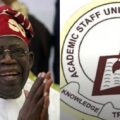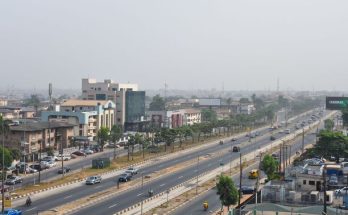For the past five years, the Nigerian higher educational sector has been plagued by numerous strikes, with the Academic Staff Union of Universities (ASUU) strike being the most crippling.
ASUU has been on strike for a total of 36 months in the last five years, leading to the loss of academic time and disruption of students’ academic pursuits.
The real reason for the continuous ASUU strike in the last five years is due to the failure of the Nigerian government to adequately fund higher education and implement agreed-upon terms of the Memorandum of Action between the government and ASUU.
Here are the reasons for the incessant ASUU strikes in the last 5 years.

Lack of educational infrastructure
The first and most prominent reason for the continuous ASUU strike is a lack of funding for the Nigerian higher education system.
ASUU has continuously called for sustainable periodic funding for universities, aimed explicitly at addressing the deteriorating educational infrastructure and moulds found in many Nigerian universities.
In the past years, Nigerian universities have experienced a lack of sufficient educational facilities such as equipped laboratories, classrooms, and reading rooms due to inadequate funding by the government.
The growing need for the universities to provide world-class teaching, research, and learning facilities cannot be overemphasized.
The government must provide sustainable periodic funding to the universities to drive academic research and intellectual discourse with the hope of creating highly equipped graduates to lead Nigeria’s charge in the development of the country.
READ ALSO: ASUU joins NLC nationwide strike
Failure to keep to promises by the FG
The second reason for the ASUU strike is the government’s unfulfilled promises with regards to meeting the various terms of the Memorandum of Action signed between ASUU and the government. ASUU submitted a series of demands in 2013, which led to the signing of the Memorandum of Action.
These demands varied from payment of outstanding balances and increased funding, an improvement to the conditions of service and welfare, and better remuneration of lecturers, to the provision of physical infrastructure in the universities.
Unfortunately, the Nigerian government failed to fulfil its part of the bargain, leading to a breakdown in trust between the government and ASUU.
This resulted in the first strike action by ASUU that lasted for five months in 2013, which effectively disrupted the academic calendar.
Since that time, the government has failed to fulfill its promises, leading to several ASUU strikes in the intervening years.
Poor policies in the educational sector
The third reason for the continuous ASUU strike is the government’s flawed and poor policies in the educational sector.
Many of the policies and directions of the government have not been favourably implemented.
This adversely affects the quality education that Nigerian universities provide. ASUU believes that many of these policies also contribute to the underfunding of education in Nigeria, leading to the deteriorating state of infrastructure in the universities, lack of research funding, and poorly equipped laboratories and libraries.
As a result, ASUU calls for a fundamental policy reorientation that will shift the focus of Nigerian higher education from massive enrolment to a one that focuses on quality.
Lack of appreciation for Nigerian lecturers
Finally, the fourth reason for the ASUU strike is to put pressure on the Nigerian government to remind them of the considerable contribution of the Nigerian professors to the global knowledge bank.
ASUU has more than 60,000 professors, research fellows and lecturers who have made giant strides in the intellectual growth of the country and projecting Nigeria’s image internationally.
Despite the relative underfunding of Nigerian universities, its professors and researchers in various academic fields, including sciences and the Humanities, continue to surge ahead with impactful research.
ASUU wants the government to recognize these contributions by ensuring proper funding and compensation for the workforce within the universities.
READ ALSO: Strike: Blackout looms as NLC demands strict compliance from ASUU, Electricity Union
Conclusion
In conclusion, the Nigerian government must realize that ASUU’s strike actions are a reflection of the issues and challenges facing the educational sector in Nigeria.
A lack of funding, unfulfilled promises, poor policies and strategies, and recognition of the work of Nigerian professors, all form the core issues driving the ASUU strikes.
A lasting solution must be found to address these issues comprehensively and in the interest of the Nigerian student populace.
The government and ASUU must come to a resolution that will ensure that Nigerian universities can provide world-class education to create highly-equipped graduates that would lead Nigeria in its drive to become a developed and prosperous nation.








